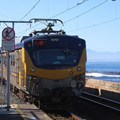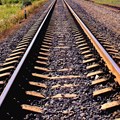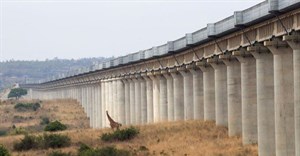Zimbabwe's national railway back on the rails

Indeed, this heralded the return of this giant parastatal, whose new capacity to move bulk goods and passengers nationally and regionally is likely to see a significant decrease in the cost of doing business in the country.
The $400 million Government-Diaspora Infrastructure Development Group-Transnet deal, saw the delivery of 200 coaches and 13 locomotives that the president commissioned at a colourful ceremony that ignited renewed hope for a city that had almost lost hope.
What's in the package?
The whole package includes 10 locomotives, three shunt locomotives, 34 passenger coaches and 200 wagons. According to government, the entire capitalisation of the NRZ is expected to run to about $2 billion.
Cognisant of the need to urgently put the NRZ back on the rails, the government and its partners decided to bring some rolling stock on lease from Transnet Freight Rail, a South African rail transport company formerly known as Spoornet, instead of waiting for 18 months by which time the manufacture of new equipment would have been completed and hand over to the State rail operator.
The turnaround of this parastatal will bring many benefits to the country whose industry has been yearning for reliable and cheaper mode of bulk transportation.
Due to reduced capacity, the NRZ was moving around 2,8 million tonnes of cargo per year, down from 18 million tonnes 20 years ago and the new locomotives and coaches help rejuvenate current capacity.
Farmers reduced production levels due to transport challenges
Some farmers in parts of the country had significantly reduced production levels due to the challenges of transporting affordable coal, a major source of energy for curing tobacco as road transporters demanded an arm and a leg for transportation services, a scenario that chewed into their profits.
With the revival of the company, the tourism sector is likely to enjoy massive benefits as there is a breed of international tourists that need to travel across borders, watching tourist attractions in neighbouring countries, in the process generating millions of dollars in foreign currency for the region.
Given the centrality of coal from Hwange Colliery to the revival of the Zimbabwe Iron and Steel Company (Ziscosteel) it becomes imperative for Government to ensure the rail company is back on track to ensure uninterrupted supplies until alternative energy source for steel making is found.
Major mining companies, especially in chrome, have been hauling their ore and finished products by road and it is the people's hope that the rail company will rise to the challenge and regain the lost lustre and become the transporter of choice by the industry.
An efficient rail transport system can save Zimbabwe's infrastructure
An efficient rail transport system can save the country's infrastructure such as roads because all heavy and bulk goods would no longer necessarily need to be transported by road, but by cheap and fast transport mode.
Before the arrival of the leased rail equipment, the NRZ had 60 working engines, with 108 out of service. It had 3,512 wagons in service with around 3,500 not working.
The locomotives are not only few; they are also too small to haul heavier cargo hence, from time to time, the NRZ had to borrow locos to move freight. But this week witnessed the turnaround of NRZ. To the company, the new deal is likely to enable the rail firm, that has not been able to pay its workers for the past 17 months, in the long run, to clear the backlog and in the process pay workers on time.
The State rail company, one of many that depended on financial handouts from the cash-strapped government should, going forward, be able to meet its working capital and capital projects obligations and also make profits. It is high time the rail operator moved from being a perennial loss maker to a profitable company that is able to declare a dividend regularly or at least once in a while.
Read the original article on The Herald.
Source: allAfrica

AllAfrica is a voice of, by and about Africa - aggregating, producing and distributing 2000 news and information items daily from over 130 African news organisations and our own reporters to an African and global public. We operate from Cape Town, Dakar, Lagos, Monrovia, Nairobi and Washington DC.
Go to: http://allafrica.com/

























